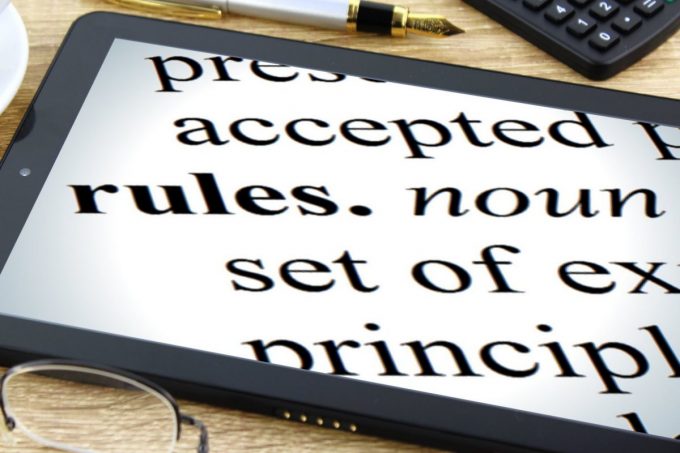
Don’t leave these group bookings on the table
Understanding who your meeting planners are and how they shop is crucial
Whether you call them event planners, meeting planners, or corporate meeting planners, they’re the ones you want to win over in order to book more group business.
Knowing how to court a meeting planner is key to getting a piece of that billion-dollar market share. According to a 2017 PwC industry analysis, groups, meetings, and event marketing in the US generated over $300 billion in revenue, with $140 billion served by the hotels.
Directors of sales and marketing (DOSMs) hoping to court professional planners subscribe to a host of professional third party platforms for meeting planners, as well as a plethora of professional networks. They know that if they aren’t leveraging these 3rd party tools to their full extent, their competition might be.
And while third party tools are great when they drive requests for proposals (RFPs) and demonstrate clear return on investment, what recourse do hotel DOSMs have when group RFPs from these channels slow down? And group RFPs are slowing down.
“The latest Group Business Outlook report from cvent shows a decline in future group bookings on the company’s platform, as bookings for the coming year continue to drag when compared to the last few years.” – Skift
While the data suggests a decrease in group bookings, hotel DOSMs hoping to tap into new or additional markets to shore up their group business need to look outside of the traditional 3rd party meeting planner tools for additional exposure.
The other type of meeting planner
Take Jessica Ortega, for example. She’s a meeting planner, but that’s not her title.
As lead generation manager at Genius Plaza, an education platform that provides resources for multicultural communities, Jessica’s in charge of planning local learning and leadership events for teachers, school principals, and administrators in South Florida.
She plans three or four meetings each year, a job that requires about 60 percent of her time. If she’s not planning meetings, she’s busy on a wide range of non-meeting related tasks.
But when she’s in planning mode, her schedule is packed with submitting RFPs, going on virtual hotel tours, and on-site property walk-throughs. She’s coordinating with outside vendors, booking room blocks, and so much more.
Jessica doesn’t behave like a traditional corporate meeting planner even though she looks a lot like one on paper. Understanding the Jessicas of the world is key to capturing that additional group share. We sat down with Jessica to better understand her process.
Here are six things we learned from how Jessica Ortega plans.
- Jessica doesn’t use 3rd party meeting planner tools.
Jessica’s never heard of cvent or Meetings Today. She doesn’t subscribe to industry newsletters. She shops local and uses the hotel website for everything. If the hotel website doesn’t clearly communicate what kind of event space, doesn’t have enough photos.
Or if she’s got to hunt for info, she’s gone.
Hotels that make all the qualifying information easy to access have a clear advantage in her book.
- She’s not shopping dozens of places, she’s shopping a handful. And she’s comparing you to them.
Unlike third party search tools that allow planners to send out a dozen RFPs at once, Jessica prefers to go hotel by hotel and build her own shortlist. She wants to stay local so the lists aren’t very long.
Jessica wants great food, great programming, a great location, and room blocks all in one place. That’s her main reason for choosing a hotel. She wants her events to be social, engaging, and fun. For that, she relies on the hotel planning team to help her visualize the experience.
If the hotel doesn’t have the tools or the creativity to help her visualise a great event, she’s going to choose the one that does.
The more creative energy and ideas the hotel brings to the table, the more likely she is to book.
- She’s flexible. It’s all negotiable.
Jessica has a date in mind, but if you can get her close to the date she wants, she’s very flexible. Especially if you can get her a better rate.
Jessica goes in with the mindset that this whole shopping experience is a negotiation. She’s got a pretty strict budget. And she’s got to make it stretch.
- She expects a thorough response. Not necessarily a fast one.
While Jessica expects a prompt response to her RFP, she’s annoyed when that first email back just reiterates what she already read on the website.
She’s not asking for a response within minutes. She’s okay if it takes 24 hours, but it better be thorough and better answer her questions.
In her mind, that’s where a hotel can really stand out. How much time did the hotel take to really understand what she’s looking for?
- She wants the hotel to be thinking about next year because she is.
Jessica is thinking about the future. She wants to know that she can grow her event with the hotel. What happens if the event grows by 100 people next year? Is the space still adequate?
Also, she wants to start that conversation early. She wants to know if next year is even an option. She certainly doesn’t want to find out at the end of her event that the space she loved is already booked for the same time next year.
- She’s just one person
One of the biggest factors to whether Jessica books a venue for a second time is the quality of the hotel’s event team. She’s just one person after all. She doesn’t have a huge team to back her up. She wants to feel like the hotel’s event team understands that from the jump. She needs them to be a true extension of her team.
Tambourine is a US-based marketing, booking and distribution service that helps hotel and travel marketers sort it all out. It delivers a 360º program that reduces stress and increases revenue.







